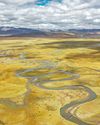
When a nominally civilian government was installed in Myanmar in 2011, and the ensuing years saw the country gradually opening up, there was cause for optimism. The Southeast Asian nation was hailed as the “last frontier” by foreign business leaders eager to secure a share of a promising emerging market. There was huge potential for investment in infrastructure and manufacturing, a youthful population of 60 million, poised to become consumers, and of course, vast untapped natural resources.
A lucky few had already caught a glimpse of some of these rich natural resources as early as 1997, when the Mergui Archipelago, an immense region comprising hundreds of tropical islands stretched out along Myanmar’s Andaman Sea coast, opened to divers travelling in boats from Thailand. Dozens of world-class dive sites began to be catalogued, including offshore sites such as “Black Rock” and “Western Rocky”. International dive magazines reported bustling reefs festooned with soft corals, abundant fish life, and big animals like sharks and many different species of rays, including mantas.
The archipelago’s “sea gypsies” – the Moken – completed the idyllic picture. We read about the self-sufficient, nomadic way of life they had led along the Andaman coast for hundreds of years. We learned of their subsistence lifestyle on small, wooden boats, foraging for food using spears – enough to feed their families with a little left over to trade for necessities. Numbering in only the thousands, these seafaring nomads had found a way to live in harmony with the ocean.
This story is from the {{IssueName}} edition of {{MagazineName}}.
Start your 7-day Magzter GOLD free trial to access thousands of curated premium stories, and 9,000+ magazines and newspapers.
Already a subscriber ? Sign In
This story is from the {{IssueName}} edition of {{MagazineName}}.
Start your 7-day Magzter GOLD free trial to access thousands of curated premium stories, and 9,000+ magazines and newspapers.
Already a subscriber? Sign In

A Spectrum Of Scarlet: The Symbolic Red Of Asian Flags
A common thread that unites many Asian flags is the prominent use of red, a colour rich with symbolism

Curry: A World of Flavour, Tradition, and Culture
From its humble beginnings in India, the concept of "curry" has evolved into a culinary language understood around the world

The Power Of Asian Red Fruits - Discover 10 Nutrient-Rich Gems Of The East
In the vast tapestry of Nature, Asia has gifted the world an array of unique and vibrant fruits, particularly those in shades of red. These scarlet-hued gems, packed with flavour and nutrients, not only add a burst of colour to your plate but also carry valuable health benefits. From antioxidant-rich goji berries to the exotic dragon fruit, let's explore some of the most popular red fruits from Asia and discover why they should be part of your diet.

Bhutan: A World Of Its Own
With its majestic monasteries, red-robed monks, charming rural villages, and vibrant festivals, the Kingdom of Bhutan is a Himalayan paradise that promises an enriching travel experience like no other

Take The Red Pill
From the vermilion torii gates of Japan to the famed rust-hued walls of India's Agra Fort, the burgundy robes of Burmese monks to scarlet chillies drying in the Bangladeshi sun, red is the quintessential colour of Asia.

70 Days for Our Land Animals
Raising awareness about conservation, the environment, and the land-dwelling species of the world

The Red Panda
Meet the elusive guardian of the Eastern Himalayas

Revealed Doctor Yellow
Japan Railways' special lemony Shinkansen is a rare sight to behold

The Mighty Yellow
Over 5,000 kilometres long and flowing through nine provinces and autonomous regions, the Yellow River is China's second largest, after the Yangtze, while its basin is deemed the cradle of Chinese civilisation

Wildlife Big Yellow Beauty
The popular "amelanistic" form of the Burmese python is considered among the most beautiful snakes - if that's your sort of thing